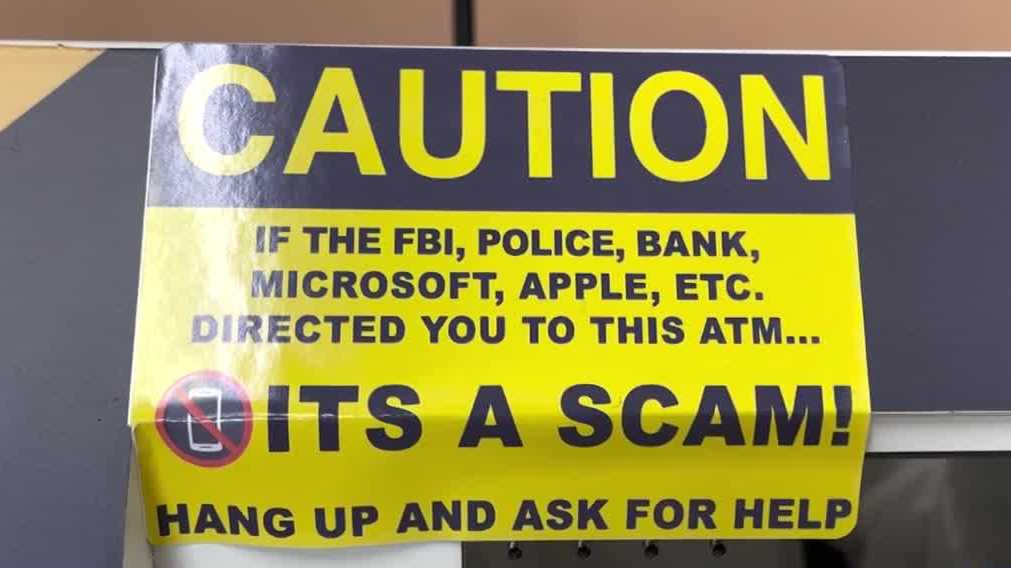Wisconsin is stepping in to combat scams involving Bitcoin ATMs, which have been increasing across the state, by implementing new regulations to protect consumers. Scammers often pressure victims to pay fines or fees using cryptocurrency, leading to significant financial losses.The state Department of Financial Institutions will soon enforce new regulations, including a daily transaction limit of $2,000 and mandatory registration for Bitcoin ATM operators. These measures, effective at the end of July, aim to protect consumers from losing thousands of dollars and to track the extent of the problem.Reports indicate that victims often bring large amounts of cash to Bitcoin ATMs, which function similarly to regular ATMs, allowing users to insert cash and receive cryptocurrency instantly. These ATMs are commonly found in liquor stores, gas stations and other storefronts throughout Milwaukee and Wisconsin.While they can be used for legitimate transactions, law enforcement and state leaders have noted a significant increase in scams facilitated by these machines. Consumers lost 66% more in 2024 than in 2023 due to Bitcoin ATM scams, according to the state DFI.”We get reports of people going in with, you know, grocery bags full of cash, pulling up a seat and just feeding money into these things,” said Mike Gavigan, assistant chief legal counsel of Wisconsin Department of Financial Institutions.The new guidance also requires companies to have their own anti-fraud policies and post special fraud signs warning consumers of potential scams. Investigations have found anti-fraud and scam signs already posted on some Bitcoin ATMs. The goal is to protect consumers from losing thousands and to assess the problem’s scope for potentially implementing more protections.”Anyone can be a victim of this. It doesn’t matter who you are, how much you know, financial sophistication you have. It runs the gamut,” Gavigan said.The enforcement also requires operators to stop the transmission of the sender’s money if they suspect fraud or crime, requires them to keep up with record keeping and suspicious activity and allows the state to revoke or suspend their license if they violate rules.Bitcoin operators must implement the new policies by July 27, or they could face penalties from the state. To read the entire policy, click here.
Wisconsin is stepping in to combat scams involving Bitcoin ATMs, which have been increasing across the state, by implementing new regulations to protect consumers. Scammers often pressure victims to pay fines or fees using cryptocurrency, leading to significant financial losses.
The state Department of Financial Institutions will soon enforce new regulations, including a daily transaction limit of $2,000 and mandatory registration for Bitcoin ATM operators. These measures, effective at the end of July, aim to protect consumers from losing thousands of dollars and to track the extent of the problem.
Reports indicate that victims often bring large amounts of cash to Bitcoin ATMs, which function similarly to regular ATMs, allowing users to insert cash and receive cryptocurrency instantly. These ATMs are commonly found in liquor stores, gas stations and other storefronts throughout Milwaukee and Wisconsin.
While they can be used for legitimate transactions, law enforcement and state leaders have noted a significant increase in scams facilitated by these machines. Consumers lost 66% more in 2024 than in 2023 due to Bitcoin ATM scams, according to the state DFI.
“We get reports of people going in with, you know, grocery bags full of cash, pulling up a seat and just feeding money into these things,” said Mike Gavigan, assistant chief legal counsel of Wisconsin Department of Financial Institutions.
The new guidance also requires companies to have their own anti-fraud policies and post special fraud signs warning consumers of potential scams. Investigations have found anti-fraud and scam signs already posted on some Bitcoin ATMs. The goal is to protect consumers from losing thousands and to assess the problem’s scope for potentially implementing more protections.
“Anyone can be a victim of this. It doesn’t matter who you are, how much you know, financial sophistication you have. It runs the gamut,” Gavigan said.
The enforcement also requires operators to stop the transmission of the sender’s money if they suspect fraud or crime, requires them to keep up with record keeping and suspicious activity and allows the state to revoke or suspend their license if they violate rules.
Bitcoin operators must implement the new policies by July 27, or they could face penalties from the state. To read the entire policy, click here.
